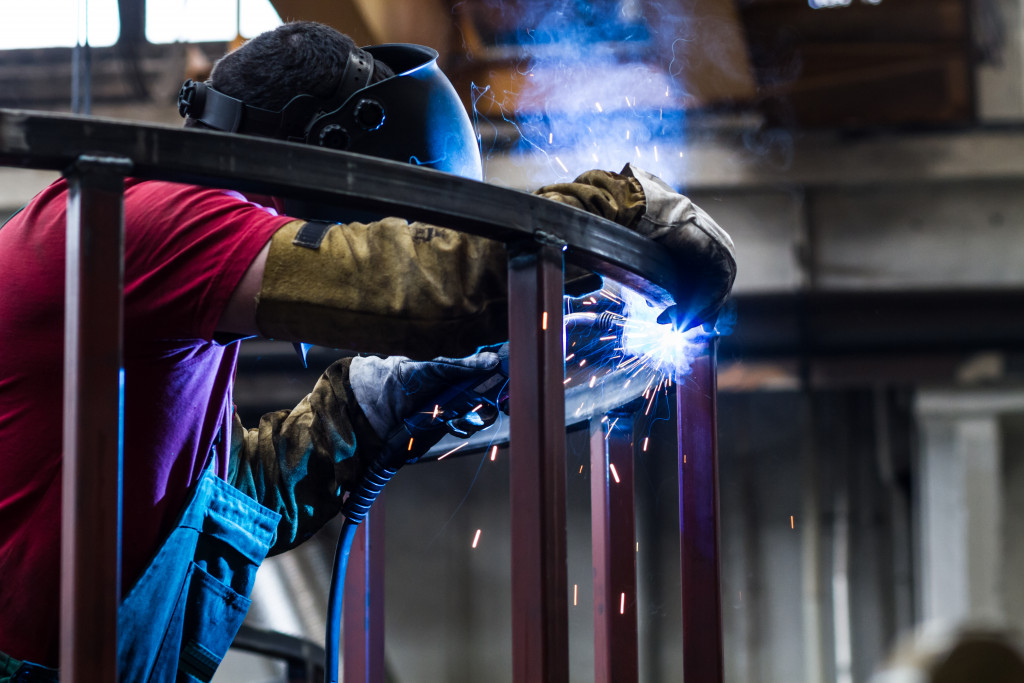The COVID-19 pandemic has undeniable effects on virtually every industry. Since business owners and entrepreneurs have no choice but to learn to cope with the current pandemic, they must find solutions to their existing business challenges. Most industries managed to stay operational by allowing employees to work remotely. But then, one cannot say the same with manufacturing brands whose operations remain on-site.
Ensuring Employee Safety
Since manufacturing operations are usually on-site, owners and managers had to think of other ways to ensure business continuity. This is while keeping their employees safe from the usual safety risks plus the threat of the virus. Aside from maintaining strict enforcement of existing health and safety protocols in the workplace, they now need to abide by new occupational health and safety guidelines brought about by the pandemic.
This is but one of the challenges those in manufacturing had to face in the middle of the crisis. The adjustments needed to provide additional personal protective equipment, tools, and disinfectant solutions only add to the growing expenses of today’s businesses. Don’t forget about the need to ensure that social distancing measures companies must observe to reduce the risk of spreading the virus.
Some manufacturing plants need to reduce the number of workers working at a particular shift. Instead of having one or two shifts, some plants now remain operational 24/7. This move ensures they can reach their daily quota and deliver to their client’s expectations.
Obtaining Supplies
Getting enough supplies on time became problematic during the crisis. Since many states and cities went on lockdowns, manufacturing companies find it hard to obtain enough supplies to add to their inventory. Some of their suppliers cannot deliver supplies on time simply because they lack the staffing to produce and deliver orders on time.
This made many businesses rethink their supplies management. Those who usually work with international suppliers due to their lowball offers had to turn to local suppliers to obtain their necessary materials and supplies. From stainless steel round pipes and plywood to fiberglass and reinforced plastics, they need to make sure they get their hands on the required raw materials within their set time frame.

Migrating Negotiations and Operations Online
Aside from turning to local suppliers, many manufacturing businesses also adopted new technology to reduce face-to-face interactions between their employees and suppliers. Thankfully, most suppliers now operate online and accept orders, payments, and inquiries on the web. They know that by limiting interactions and by improving communication online, businesses can continue obtaining their required supplies without the risk of spreading the virus by restricting interactions and improving communication online.
Even manufacturing brands now utilize the power of innovations to cater and acquire new clients online. They now have their professional website set up, have online customer support working on customer service 24/7, and accept orders online. They are taking online negotiations as part of their brand’s digitization.
Ensuring Adequate Workforce
Since the COVID-19 pandemic made more people sick no matter their status or occupation in life, many manufacturing plants now lack the required number of workers to ensure a seamless operation. Many of them got sick, while more were afraid to get infected with the deadly virus. Many migrant workers who make the most number of workers in the manufacturing industry moved out because of the pandemic.
Even with stricter health and safety protocols, many manufacturing brands fail to get an adequate workforce on the worksite. What some businesses can do is to ensure their employees that they are doing everything they can to reduce the possibility of contamination and infection in the workplace. For some managers, they can get more jobs done by outsourcing some tasks to reduce the workload of their remaining employees.
Communication and Business Risk Mitigation as Key
These unprecedented times call for better leadership, resilience, and optimism. One can no longer continue business operations as before, considering the virus is a significant threat to our health, sanity, and safety. But with continuous effective communication and business risk mitigation, businesses in the manufacturing sector can continue their operations.
It is a must that leaders continue protecting their workforce in every way possible. One should not only focus on business continuity but risk management as well. While that might seem challenging, the minor changes in this article can help them through his transition. This is the only way manufacturing brands can convince their workers that they care, prove to their clients that they can still deliver excellent results, and ensure their business won’t fail in the middle of a crisis.








